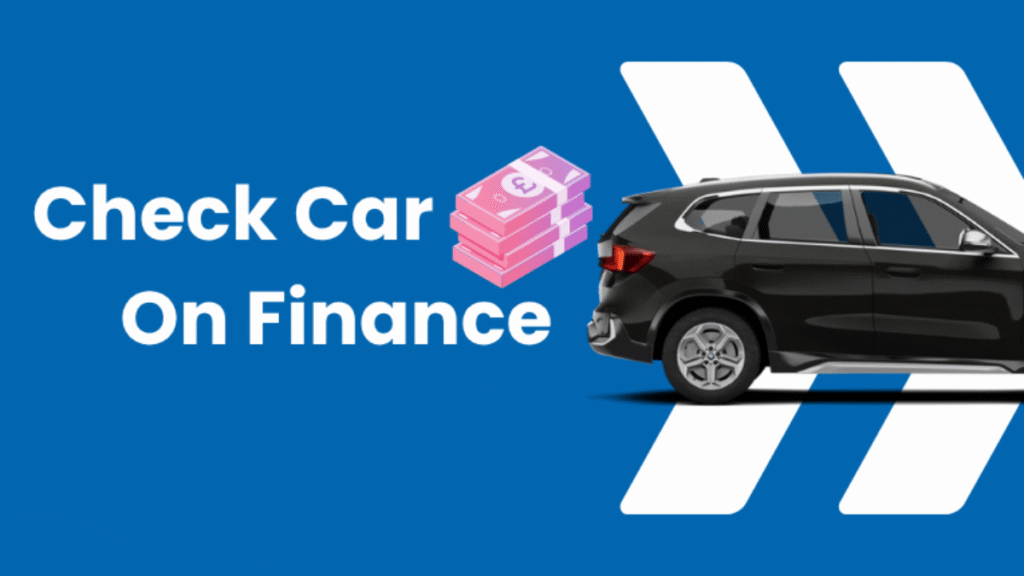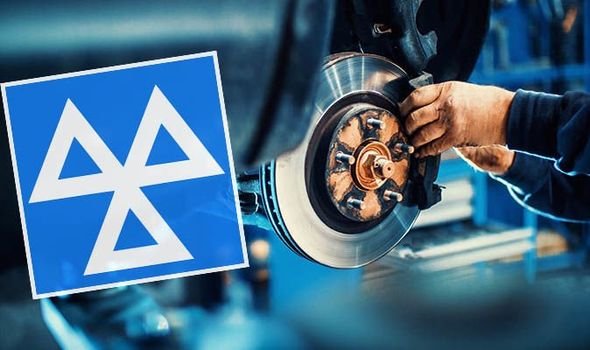When buying a used car, one of the most common mistakes people make is not checking whether the vehicle still has outstanding finance. A simple Vehicle Finance Check can save you from huge financial losses and legal trouble.
Many cars in the UK are purchased through finance agreements, and if the loan is not fully repaid, the finance company still owns the vehicle — not the person selling it. If you buy such a car, the lender could legally repossess it, leaving you without the car or your money.
This guide will walk you through how to perform a Vehicle Finance Check, what information you’ll get, and how to stay safe when buying a car.
What Is a Vehicle Finance Check?
A Vehicle Finance Check is a report that shows whether a car has any outstanding finance agreements. It’s an essential step when buying a used car because:
-
The seller may not legally own the car if it’s under finance.
-
The lender can repossess the car even after you buy it.
-
You may lose your money if the deal goes wrong.
This check can reveal details such as:
-
Finance agreement type (e.g., PCP, HP)
-
Name of finance company
-
Start and end date of the agreement
-
Outstanding balance
-
Payment history or default alerts
Why Checking Vehicle Finance Is So Important
Many used car buyers trust the seller without verifying the car’s financial status. But failing to check can lead to:
-
Repossession Risk: If the loan isn’t cleared, the lender can take back the car.
-
Financial Loss: You may lose both the car and your payment.
-
Legal Problems: Finance companies have a legal claim over the vehicle.
-
Fraud Prevention: It protects you from purchasing cars from dishonest sellers.
-
Peace of Mind: You’ll know the car is legally owned by the seller.
How to Perform a Vehicle Finance Check in the UK
Step 1: Get the Car’s Registration Number
Before starting, note the vehicle’s registration number (number plate) and VIN if available. You’ll need this information to perform the check accurately.
Step 2: Use a Trusted Vehicle Finance Check Service
You can’t check finance details directly on free government websites like MOT history or DVLA, because finance agreements are private. However, there are reputable services that provide this data:
-
HPI Check (hpicheck.com)
-
CarVertical (carvertical.com)
-
Total Car Check (totalcarcheck.co.uk)
-
AutoCheck
These services provide a full finance report showing:
-
Outstanding finance agreements
-
Type of agreement (HP, PCP, lease, etc.)
-
Finance company details
-
Vehicle status (clear or not clear)
Step 3: Read the Finance Report Carefully
A typical Vehicle Finance Check report will display:
-
“Clear” — if there’s no outstanding finance.
-
“Outstanding finance” — if the car is still owned by the lender.
-
“Defaulted” — if the finance payments have not been made.
Check the dates, company name, and amount carefully. If anything seems suspicious, contact the finance company directly.
Step 4: Contact the Finance Company (If Needed)
If the report shows outstanding finance, contact the finance company listed to:
-
Confirm the balance.
-
Check if the seller is the registered borrower.
-
Ask if the loan will be settled before or after the sale.
Never buy a car with active finance unless you have written confirmation from the lender that the finance will be cleared before ownership is transferred.
Types of Car Finance You May Find
Not all finance agreements are the same. Understanding the type can help you make better decisions:
1. Hire Purchase (HP)
The buyer pays monthly until the total is cleared. Ownership transfers only after the final payment.
2. Personal Contract Purchase (PCP)
The buyer pays lower monthly payments but must make a large final payment (balloon payment) to own the car.
3. Lease or Contract Hire
The car remains the property of the finance company throughout.
4. Personal Loan
If the car was bought using a personal bank loan (not secured against the car), the car can be sold legally — but check ownership documents.
Red Flags to Watch Out For During a Vehicle Finance Check
-
The seller refuses to provide finance details.
-
VIN or registration numbers don’t match.
-
Finance agreement is active and not settled.
-
The seller claims they will “settle it after you pay” — risky.
-
Car is being sold at a suspiciously low price.
If you encounter any of these, walk away from the deal or involve the finance company.
How to Avoid Buying a Car with Outstanding Finance
-
Always run a Vehicle Finance Check before paying.
-
Ask for proof of settlement from the seller if finance exists.
-
Get a written agreement stating the finance will be cleared before transfer.
-
Verify with the finance company directly.
-
Use a secure payment method for your purchase.
What Happens If You Buy a Car with Outstanding Finance?
If you unknowingly buy a financed car:
-
The finance company can legally repossess the car.
-
You may not get your money back.
-
You can file a claim under “innocent purchaser” but it can be complex.
-
It may involve legal action or settlement with the finance company.
Prevention is always better than cure — that’s why a Vehicle Finance Check is crucial.
Free vs Paid Vehicle Finance Checks
| Feature | Free Checks (DVLA, MOT) | Paid Finance Checks |
|---|---|---|
| MOT history | ✅ | ✅ |
| Tax status | ✅ | ✅ |
| Outstanding finance | ❌ | ✅ |
| Finance company details | ❌ | ✅ |
| Write-off & theft alerts | ❌ | ✅ |
| Full vehicle history | ❌ | ✅ |
A paid finance check provides essential protection that free checks don’t offer.
Other Important Checks to Do Alongside Finance Check
When buying a used car, don’t just stop at finance verification. Also check:
-
MOT History (GOV.UK MOT History Checker)
-
DVLA Vehicle Details (DVLA Vehicle Information Checker)
-
Stolen Vehicle Check
-
VIN and Registration Match
-
Mileage Consistency Check
A combined check ensures the vehicle is legal, safe, and genuinely owned by the seller.
Tips for Safe Car Buying
-
Meet the seller at their home or registered address.
-
Ask to see their driving license and V5C logbook.
-
Check the VIN on the car and documents.
-
Don’t rush — scammers pressure buyers to act fast.
-
If in doubt, walk away.
Legal Rights if You’re a Victim of Car Finance Fraud
If you end up buying a car with outstanding finance:
-
Contact the finance company immediately.
-
Get legal advice or contact Citizens Advice.
-
File a police report if fraud was involved.
-
You may have limited protection under the “Innocent Purchaser” rule.
Always keep all documents, receipts, and communication as evidence.
A Vehicle Finance Check is one of the most important steps when buying a used car in the UK. It helps you avoid financial scams, repossession risks, and legal trouble. By checking for outstanding finance, verifying MOT history, and confirming ownership, you ensure a safe and secure purchase.
Don’t skip this step — a few minutes of checking can save you thousands of pounds and protect your peace of mind.
Vehicle VIN Lookup How to Verify Your Car’s MOT and Ownership
VIN Lookup UK: How to Check Car MOT and Vehicle History with VIN



